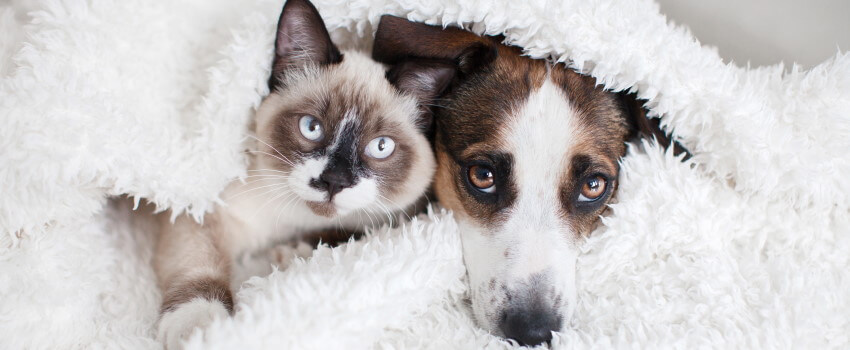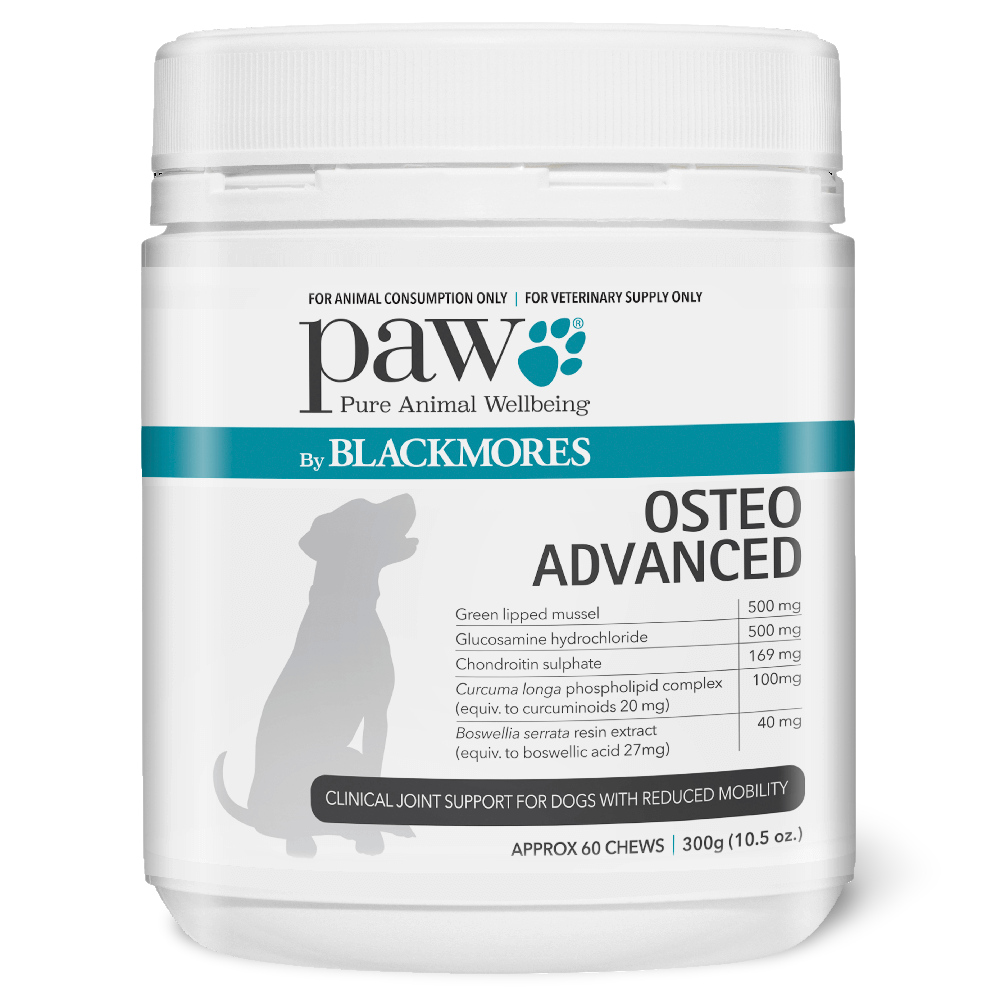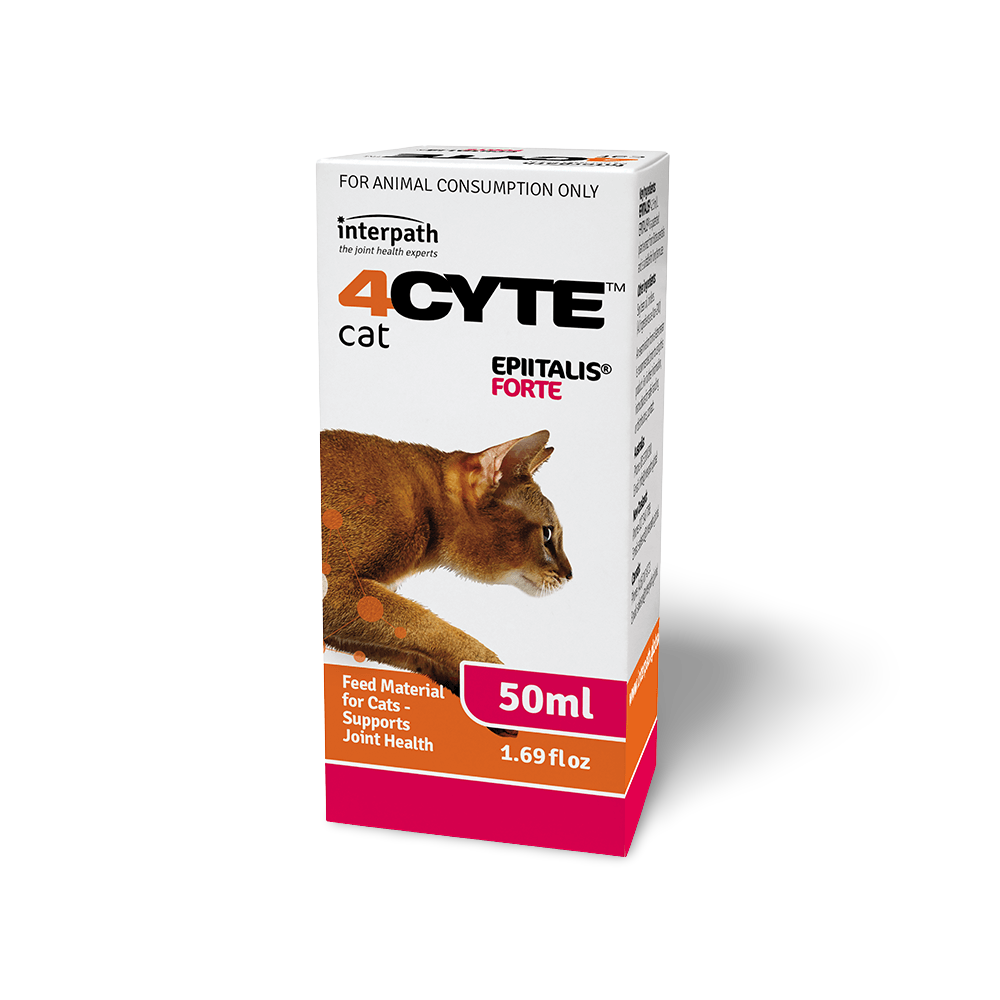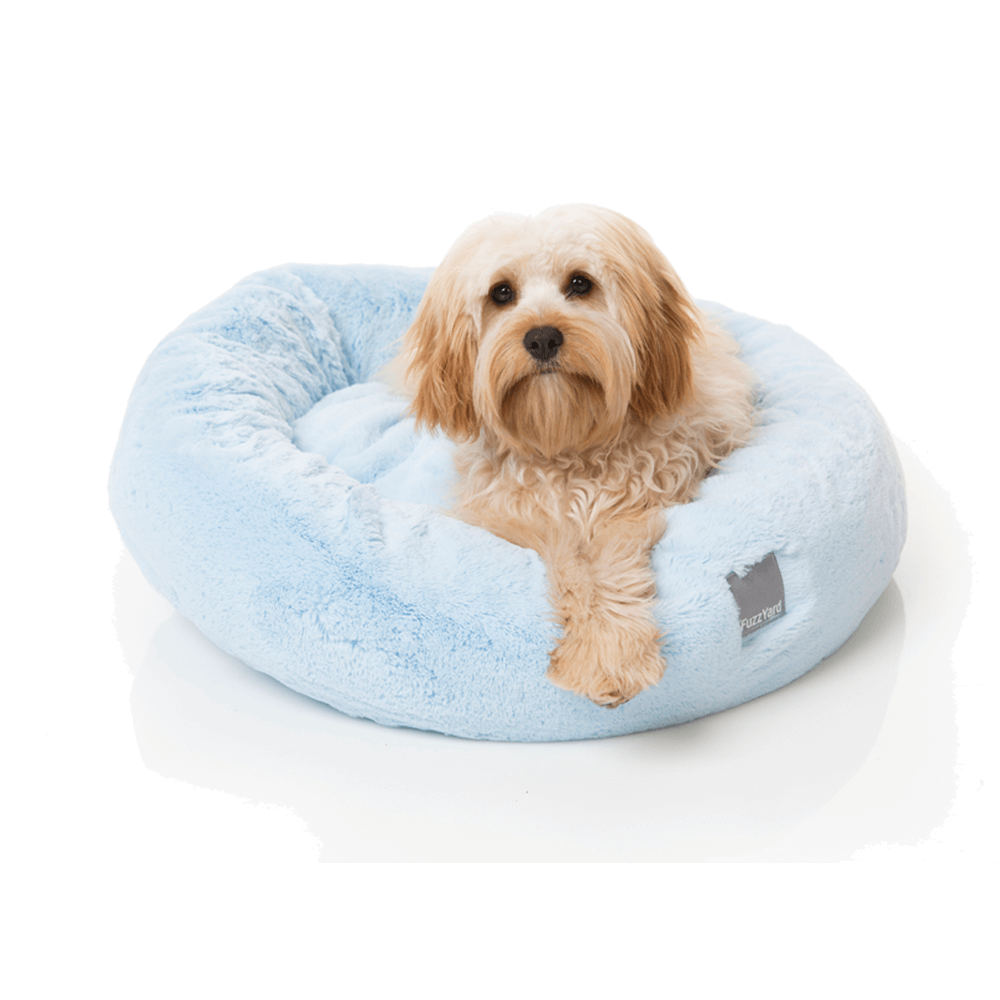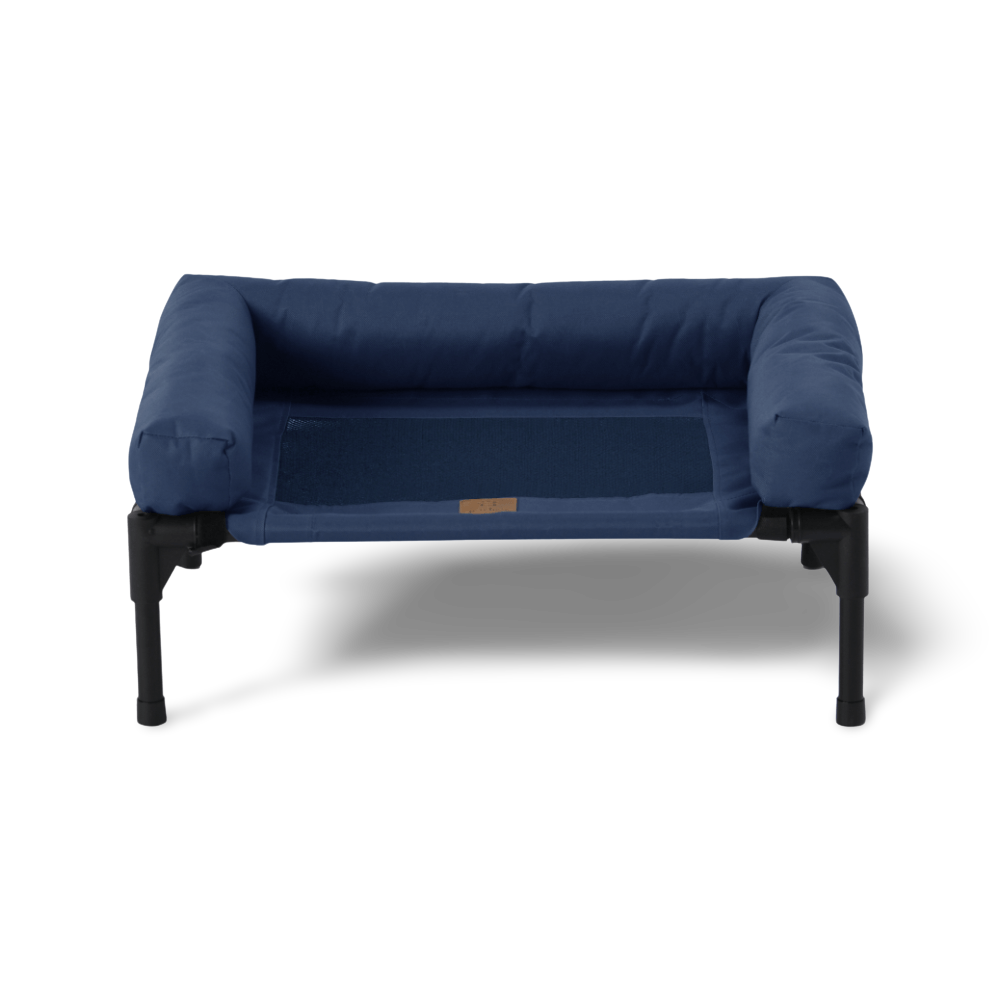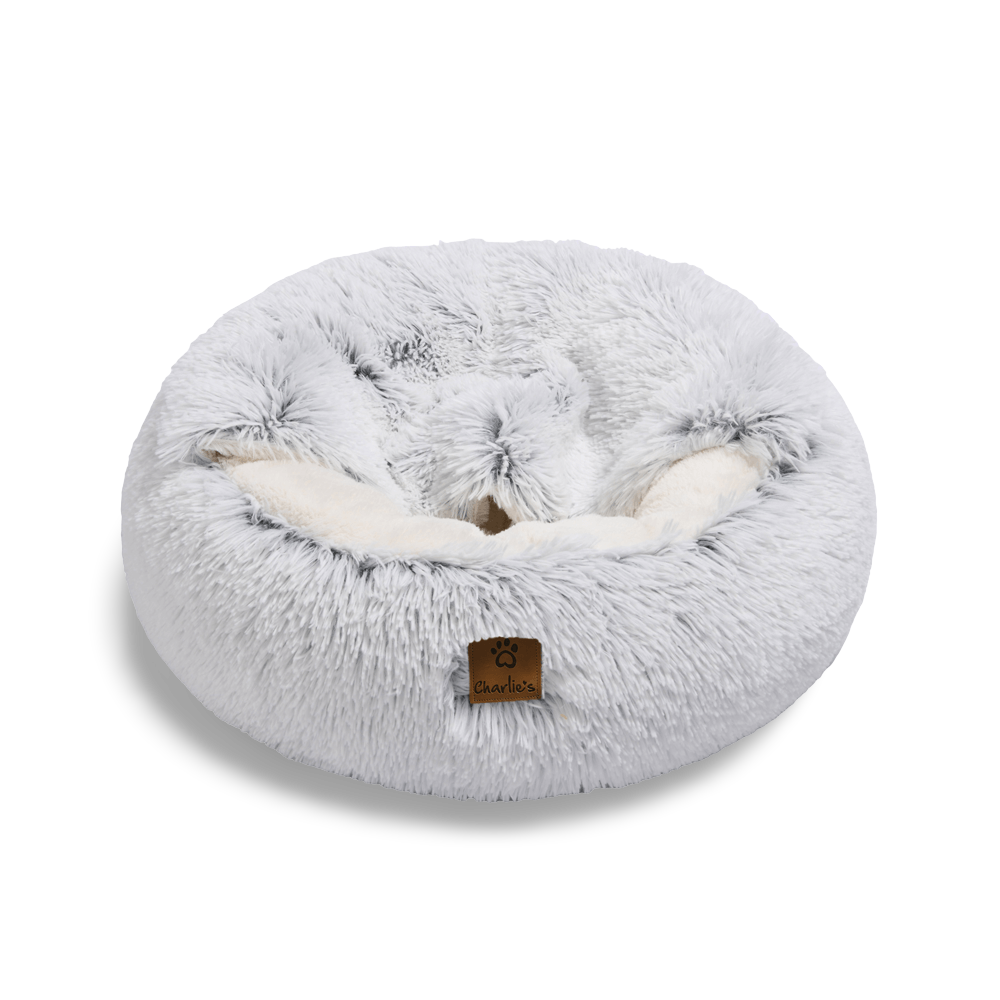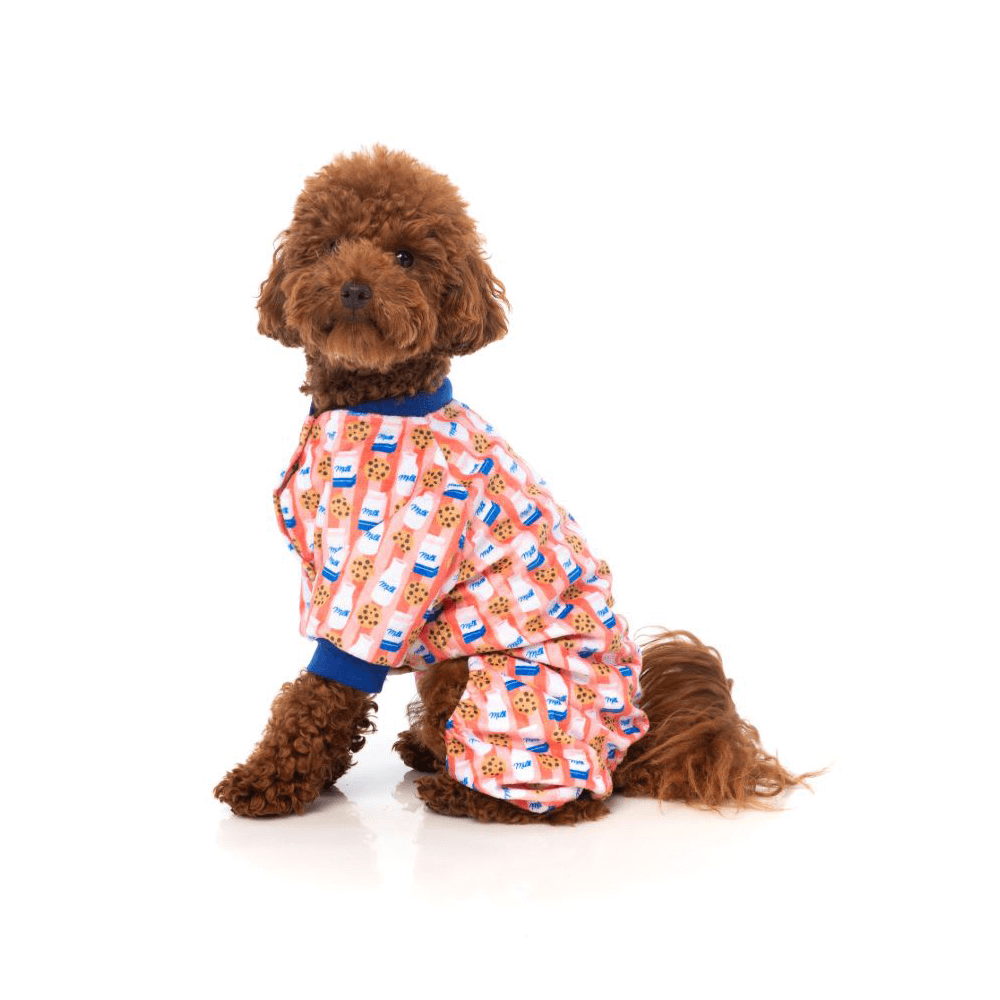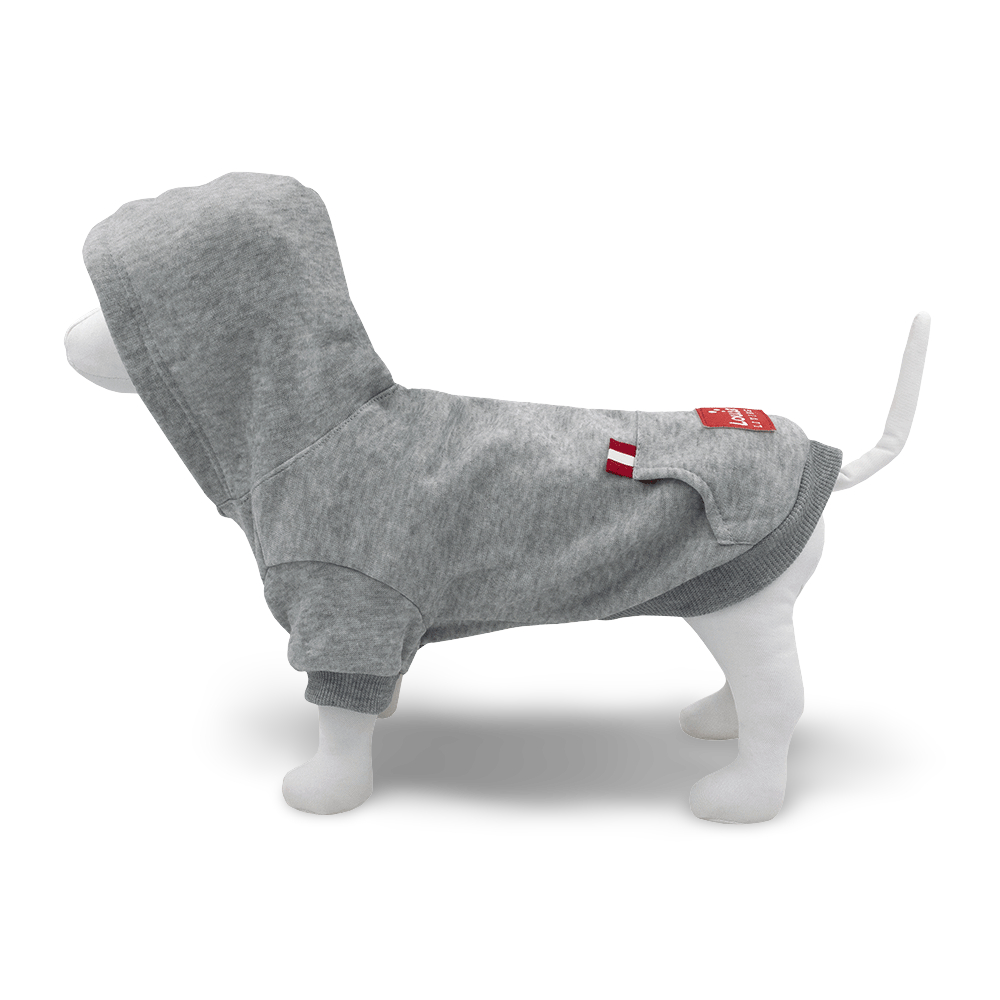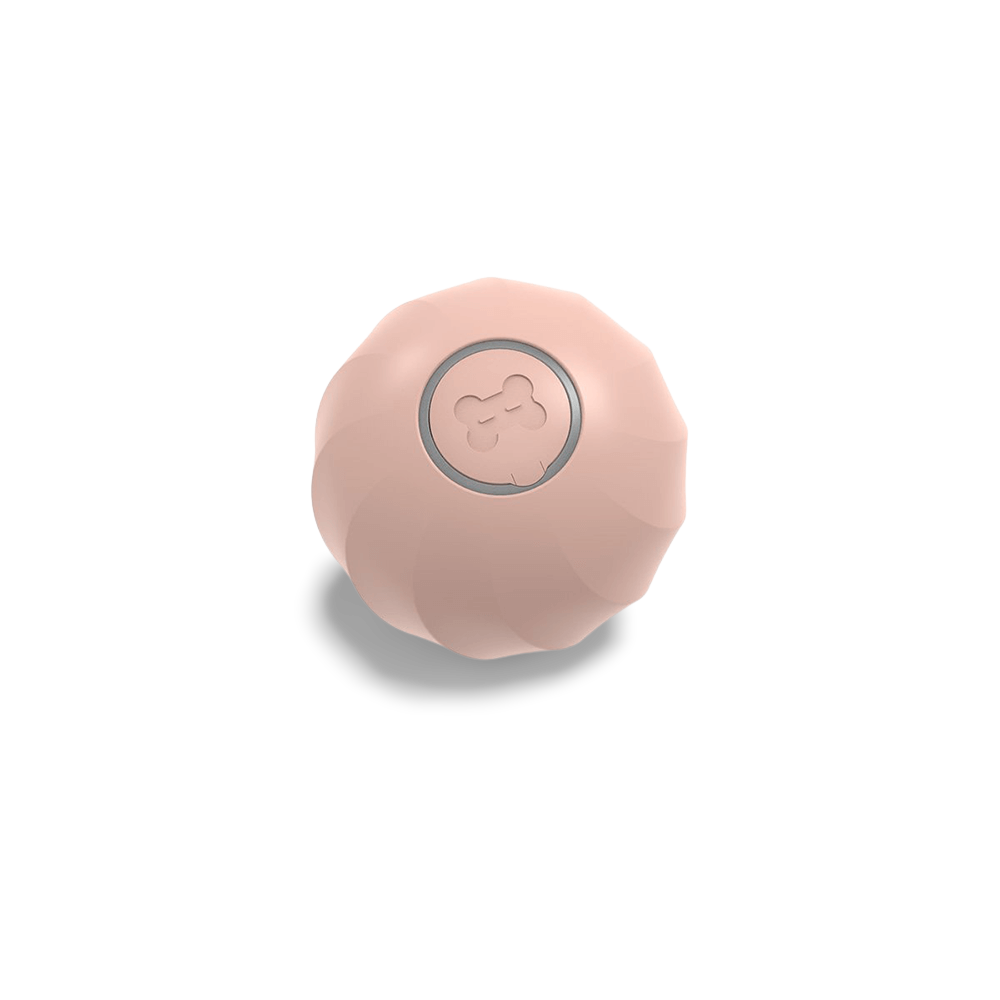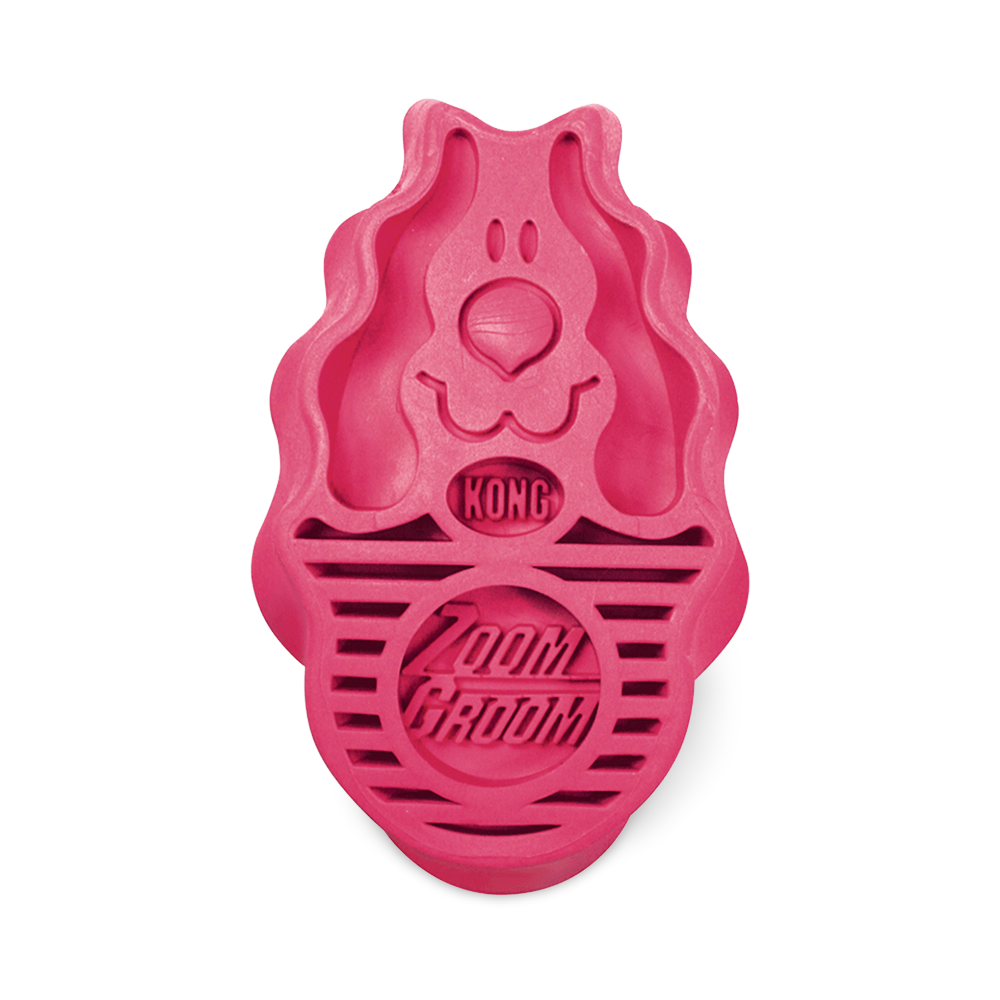Winter Pet Care Essentials
This article is written by Pet Circle veterinarian,
Winter is on our doorstep, which means cold nights and blustery days. While we all love snuggling up next to the heater on a cold winter's day, it is important to remember that cold weather can bring certain health concerns for our pets including joint pain, parasites, and itchy, dry skin.
Fortunately, there are changes we can make at home to give our pets some relief from wintertime ailments. With arthritis and parasite products, grooming tips, as well as warm coats, blankets, and cosy beds to keep them snug, your pet can stay comfortable and warm all winter long!
Contents:
Joint Care

For older pets in particular, arthritis and other joint pain issues can flare up during the colder months. Scientifically referred to as osteoarthritis or degenerative joint disease, arthritis is a degenerative, progressive, and irreversible inflammatory condition of the joints. Arthritis can be painful but there are a variety of at-home techniques and products that can be helpful in managing the condition including:
1. Weight Control: Weight control is the single most important strategy in the management of arthritis. As well as adding an extra load to sore joints, fat also releases inflammatory mediators which contribute to inflammation in many part's of your pet's body, including the joints.
2. Joint Supplements: Arthritis supplements in pets most commonly contain omega fatty acids, glucosamine and chondroitin. Omega 3 fatty acids DHA and EPA are commonly sourced from fish oil, flaxseed, and green lipped mussel and have natural anti inflammatory properties which help with the pain of arthritis. Some recommended joint supplements include 4cyte, Paw Blackmores, Zamipet and Glyde for dogs, and PAW Blackmores Osteosupport, 4cyte and Petz Park for cats.
3. Therapeutic diets: If your pet has arthritis, your vet may recommend a mobility diet which has been scientifically formulated and proven to help improve mobility. These diets contain a number of beneficial nutrients which are known to help reduce inflammation and support joint health at therapeutic levels, while also delivering high quality, easy to digest nutrition to keep your pet in optimal health and body condition. Some recommended mobility diets include Royal Canin Joint Care or Hill's Science Diet Healthy Mobility for dogs, and Hill's Science Diet Kidney and Mobility for cats.
4. Physical therapy and low-impact exercise: Your pet will need to stay active, but only in a way which won't hurt their joints. Most pets are comfortable with light to moderate exercise regimes. However, every animal is different, so it's important to talk to your veterinarian about what's best for your pet. Swimming or Hydrotherapy is an excellent option for dogs, with minimal pressure placed on the joints and it is a gentle way to strengthen and rebuild muscles to prevent further injury.
5. Orthopaedic beds: A supportive bed is vital for arthritic pets. Avoid beds with a large lip as this can be difficult for pets to step over. Ideally opt for a sturdy bed raised off the ground with memory foam such as the Charlie's Orthopaedic Memory Foam Beds. A solid structure will provide better support whereas soft, fluffy beds can make getting up a more difficult task.
For more tips on joint care, read our veterinary written articles Arthritis Care for Dogs and Arthritis Care for Cats.
Warm and Cosy Beds

Who doesn't love curling up in a soft, warm bed on a cold Winter's morning! Plush beds are a great way to keep your pet comfortable and warm, while hideaway style beds are particularly good for cats or small breed dogs that love to curl up and hideaway to sleep. For pets that suffer from arthritis or other joint pain, an elevated bed is an excellent choice as this style of bed can be easier to get in and out of.
Never underestimate how much your pet can feel the cold. Outdoor pets and working dogs may seem tough, but they can truly feel the chill (just like us!). If you can't keep your pet indoors at night, always provide a kennel and consider a cushion or mat to help keep the inside warm.
The addition of a blanket and a soft toy will make your pet's bed even more cosy!
For more information on the best bed for your pet, read our veterinary written article: What Type of Bed Does Your Pet Need?.
Jumpers, Jammies and Coats

One of the easiest ways to keep your pet warm when the temperature drops is by wrapping them up in a cosy jumper, coat or pyjamas to help with body temperature regulation. Jumpers are great for short-coat dog breeds as well as puppies and elderly dogs, who are most likely to feel the cold.
From woollen turtlenecks to outdoor moleskins to costumes, there is just about every type of pet coat imaginable nowadays. For super sleek, premium coats and knits, try the range from Huskimo or Kazoo. For a range of flamboyantly colourful prints and hilariously 'mini human' styles such as hoodies, pyjamas and puffer jackets, check out Fuzzyard.
Not sure how to fit your dog for a coat? Read our helpful article Dog Coat Sizing Guide.
Shop All Dog Clothes and Coats
Keep Active

The cold weather and shorter daylight hours can make exercising less desirable in winter time. While this may be the case, it is important for our pets....and us, to continue exercising during the cooler months. Rather than hiding under a blanket all day, why not warm up with a walk or run in the park - and get some much appreciated Vitamin D in the process.
If the shorter days with fewer daylight hours are putting you off, why not check out some glow and light up toys or a glow-in-the-dark or reflective collar and lead. These luminescent products keep your pet safe by remaining glowing and visible no matter how dark the conditions.
For cats, an indoor daily playtime session is essential. Keep a range of fun toys on hand and alternate between interactive, teaser, and soft toys to keep things fun and fresh, and get your cat moving!
Read more about our entire range of glowing fitness products in our article 5 Must-Have Night Walk Products.
Winter Grooming

Many pet owners choose to let their pet's fur grow longer for extra insulation in winter. A long coat is no problem, provided that it is well-maintained and groomed. Long fur can become matted if brushing isn't maintained, which can lead to skin irritations and discomfort. A dusty home environment (often seen when the windows are kept closed and warm fleecy blankets are retrieved from the cupboard), can encourage parasite growth and allergies, further compounding skin issues.
To help avoid winter skin irritations, there are a number of easy things you can do at home:
1. Parasite Prevention. Even though ticks are less common, pesky mites pose a particular risk at this time of year. Ensure that flea and tick prevention is maintained, and be particularly sure to use a product which protects against mites such as Bravecto, Revolution, or Advocate.
2. Regular Coat Brushing. Keep your pet's coat well-groomed and brushed daily. If your pet has a thick fur or sheds excessively, you might like to try a de-shedding brush such as the Furminator.
3. Moisturise. When it comes to shampoo and conditioners, go for ultra-moisturising varieties to prevent your pet's skin from drying out in a heated home environment. Oatmeal conditioners such as Aloveen are incredibly soothing, and are a must-have if your pet suffers from dry skin.
For more information on skin support, view our veterinary written article How to Stop My Dog Scratching or The Causes of Itching in Cats.
Further Reading
Your guide to fleas, ticks and worms
Want to know more? Check out our Discover Page for more tips from our expert vets on keeping your pets happy and healthy.























